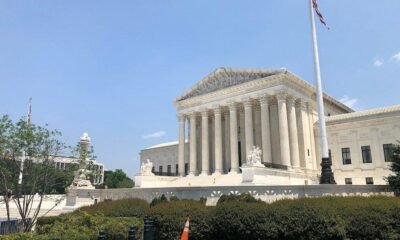California Department of Justice
Federal Court Halts Immigration-Related Cuts to Transportation Funding

A federal judge in Rhode Island has halted an order that would have cut off billions in federal funding for infrastructure projects in states not complying with the Trump administration’s immigration policies.
U.S. District Judge John James McConnell Jr. issued a preliminary injunction on Thursday against the U.S. Department of Transportation and Secretary Sean Duffy, favoring the 20 Democratic-led states involved in the lawsuit.
The ruling, affecting only the plaintiff states, suggests a strong likelihood that McConnell will rule in their favor. He indicated that Duffy exceeded his authority by imposing new eligibility requirements on funds allocated by Congress for specific uses.
In his 10-page ruling, McConnell criticized the “arbitrary and capricious” nature of the Immigration Enforcement Condition, arguing it lacked clarity on how states would need to cooperate on immigration matters in exchange for federal transportation dollars. He underscored the importance of these funds for maintaining safe and efficient travel for residents.
This decision arrived just before a deadline for infrastructure grant funding applications. The lawsuit’s participants include states such as California, Illinois, New Jersey, and New York, among others.
Rhode Island Attorney General Peter F. Neronha welcomed the ruling. He stated that the court’s decision reaffirmed the importance of upholding states’ rights against federal overreach.
During a hearing, McConnell had expressed skepticism about the Transportation Department’s right to impose restrictions on funds already approved by Congress, asserting that such power lies solely within congressional authority.
The lawsuit challenges a directive from Duffy requiring states to assist in federal immigration enforcement to qualify for funds. Delbert Tran from the California Department of Justice argued that withholding critical funding threatens infrastructure across the plaintiff states.
In defense of the directive, Bloom argued that it encourages compliance with federal immigration laws. However, McConnell pointed out discrepancies between that interpretation and the administration’s outspoken stance against sanctuary cities, noting how these cities have been targeted by federal actions.
Tran warned that cutting off federal funding could lead to increased accidents and fatalities on roads, planes, and trains dependent on these financial resources.
Ultimately, McConnell remains critical of the Secretary’s claimed authority to condition infrastructure funding on immigration compliance, suggesting that such measures could undermine Congress’s appropriations power.


















